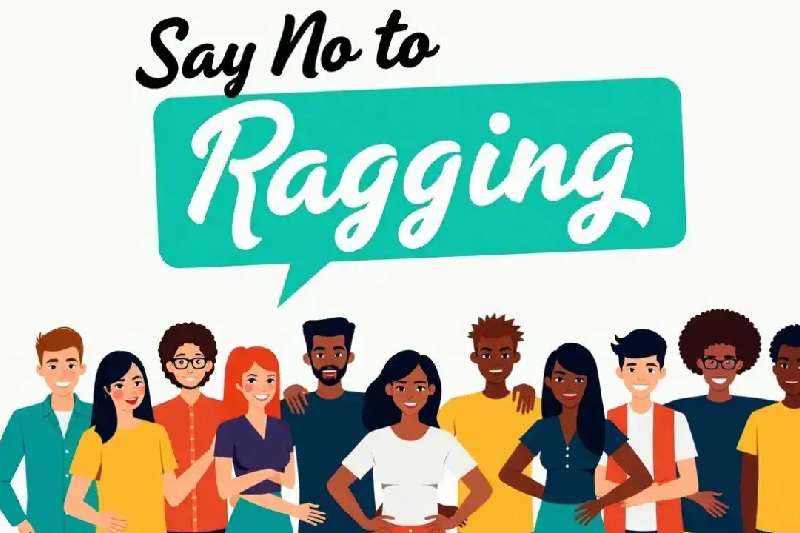
NMC Directs Medical Colleges to Mark Anti-Ragging Day on August 12: Week-Long Awareness Drive Planned
The National Medical Commission (NMC) has issued a directive to all medical colleges under its purview to observe Anti-Ragging Day on August 12, 2025, followed by Anti-Ragging Week from August 12 to August 18. The move aligns with the University Grants Commission (UGC) advisory on July 22, which aims to reinforce anti-ragging measures and create safer campus environments across India.
Mandatory Compliance for Medical Institutions
In its notice, the NMC emphasised that the observance is part of the mandatory anti-ragging framework already laid out by the UGC. All higher educational institutions have been instructed to ensure strict adherence to the regulations, including active monitoring mechanisms to prevent and address incidents of ragging.
The NMC has also reminded institutions that compliance is not optional. Universities and colleges must follow the spirit and letter of these rules to protect students from harassment, intimidation, or harm.
A Week Dedicated to Awareness and Engagement
The UGC’s advisory outlines a detailed plan for activities during Anti-Ragging Week. The goal is not only to raise awareness but also to actively engage students, faculty, and administrators in preventive measures.
The recommended activities include:
- Inaugural ceremonies to formally launch Anti-Ragging Week.
- Creative competitions such as slogan writing, essay writing, poster-making, photography contests, street plays, and debates—all centred around anti-ragging themes.
- Recognition and incentives, with certificates and prizes awarded to students who participate in and contribute to the campaigns.
By making the campaign interactive and creative, the UGC hopes to encourage maximum student involvement and peer-to-peer advocacy against ragging.
National Contest 2025
The UGC has also urged institutions to motivate students to take part in the National Contest 2025, which invites entries in the form of:
- Digital posters
- Short videos
- Social media reels
The contest is designed to amplify anti-ragging messages in digital spaces where young audiences are most active. Detailed information, including categories, deadlines, and award criteria, is available on the UGC’s dedicated anti-ragging portal — antiragging.in.
Offline and Online Campaign Strategies
To ensure a holistic approach, the advisory recommends that institutions combine offline awareness activities with digital outreach campaigns.
Offline activities may include:
- Workshops, seminars, and interactive sessions led by faculty or guest experts.
- Street plays and theatre performances portraying the harmful impact of ragging.
- Selfie corners on campus with anti-ragging messages to encourage participation and social media sharing.
Online activities may involve:
- Posting updates and creative content from campus events on social media platforms.
- Sharing video messages from heads of institutions reinforcing the anti-ragging commitment.
- Running digital campaigns under unified hashtags to increase visibility and engagement.
Role of Audio-Visual Content
In addition to interactive activities, institutions have been advised to screen short films and awareness videos available on the UGC’s anti-ragging website. These resources are intended for both students and faculty members, ensuring that everyone in the campus community understands the importance of a ragging-free environment and is aware of their responsibilities in preventing it.
Responsibility of Affiliated Institutions
The UGC has further directed universities and other governing bodies to forward the advisory to all affiliated colleges. This ensures that the Anti-Ragging Day and Week observance reaches every corner of the higher education system, not just central and state universities but also private and autonomous colleges.
The Bigger Picture: Preventive Education
The UGC and NMC’s joint push for Anti-Ragging Week is part of a broader preventive education strategy. By making anti-ragging awareness a sustained and interactive effort rather than a one-day symbolic event, the authorities aim to:
- Strengthen preventive mechanisms at the institutional level.
- Foster a culture of safety, dignity, and mutual respect on campuses.
- Provide clear channels for students to report incidents without fear of retaliation.
Why Anti-Ragging Efforts Matter
Ragging has been a persistent issue in Indian educational institutions, sometimes leading to severe mental trauma, physical harm, and even fatalities. The UGC’s anti-ragging regulations—enforced in partnership with professional councils like the NMC—seek to address this through:
- Mandatory declaration forms signed by new students and their parents.
- Awareness campaigns to sensitise students about the legal and institutional consequences of ragging.
- Swift disciplinary action against offenders.
By making awareness activities a structured and annual event, authorities aim to create lasting behavioural changes that go beyond compliance and foster genuine peer accountability.
How Students and Colleges Can Contribute
For students, participating in Anti-Ragging Week offers an opportunity to:
- Use creativity—through art, writing, photography, or theatre—to spread awareness.
- Engage in meaningful discussions about campus safety and mental well-being.
- Take ownership in building a positive campus culture.
For institutions, the week is a chance to:
- Revisit and strengthen anti-ragging policies.
- Train faculty and administrative staff in early detection and intervention strategies.
- Build an open communication channel for students to report grievances.
Looking Ahead
The success of Anti-Ragging Day and Week will depend on active collaboration between students, faculty, and administration. By embracing both traditional awareness tools and modern digital engagement, institutions can ensure that the message of a ragging-free campus is both seen and felt.
With the NMC’s directive and UGC’s framework in place, August 12 to 18, 2025, promises to be a nationwide call to action—one that reinforces that education must be a space for growth, safety, and respect, not fear or intimidation.
Ragging is not just a disciplinary issue—it’s a barrier to education, equality, and mental well-being. With the combined efforts of the NMC, UGC, and thousands of colleges across India, Anti-Ragging Week 2025 has the potential to be more than a ritual—it can be a turning point in the fight to end ragging in educational institutions for good.


